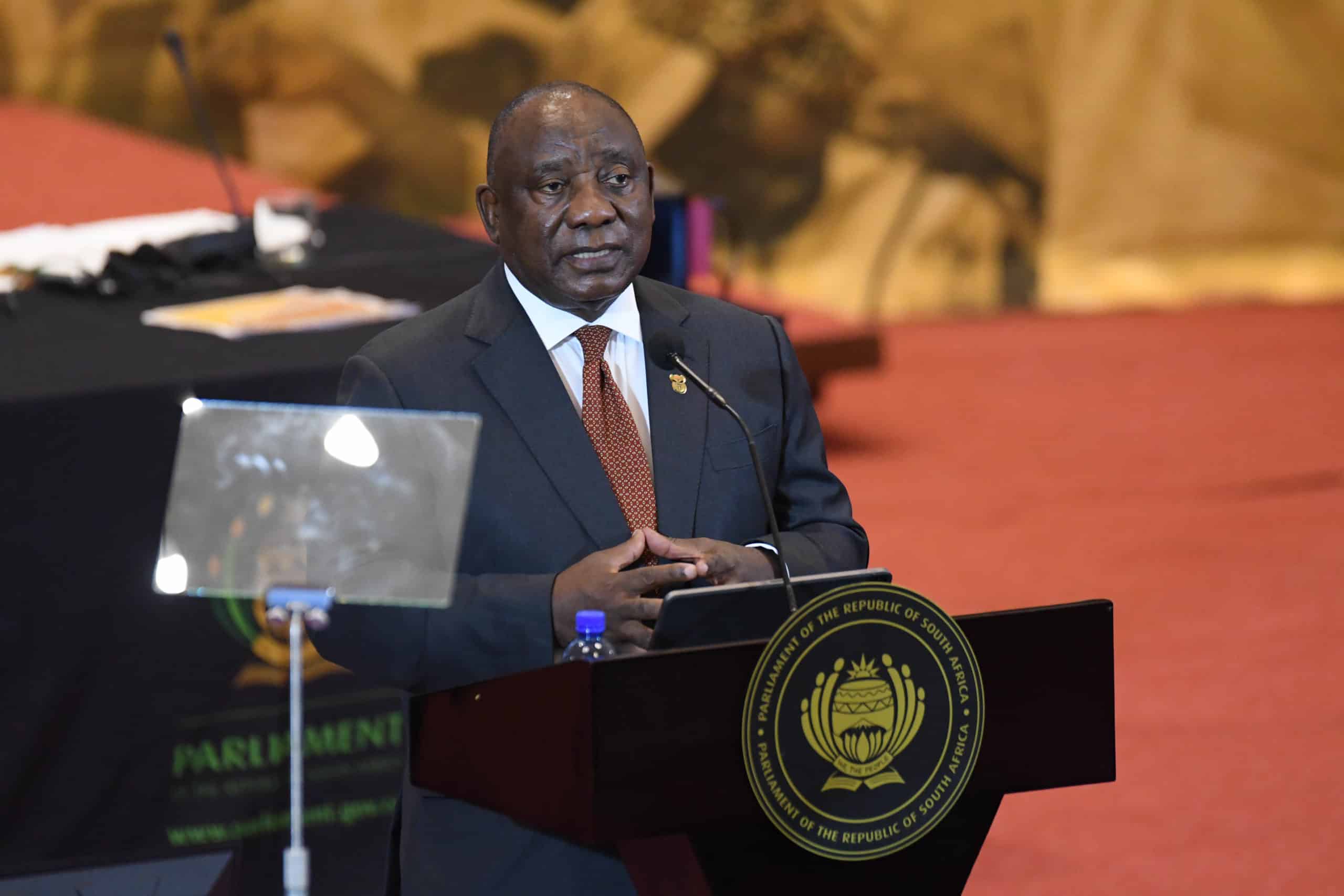Topline
With South Africa’s consistent rolling blackouts, President Cyril Ramaphosa at his annual State of the Nation Address (SONA) held in Cape Town yesterday said that the country is in the “grip of a profound energy crisis, the seeds of which were planted many years ago”. Ramaphosa announced last night at SONA that plans have been put in place to appoint a Minister of Electricity to address the increasing power cuts in the country. Experts, organizations and the people are weighing in on this decision, with some calling it a “joke” and “a bad idea”.
Key Facts
For almost a year now, South Africa’s primary electricity supplier, Eskom, has been effecting rolling blackouts, known as load-shedding, jumping between stage 3 (a power outage of two hours) to stage 6 (no power up four hours).
In Ramaphosa’s address to the nation, the president stated that the National Disaster Management Centre has classified the energy crisis and its impact as a disaster.
“We are therefore declaring a national state of disaster to respond to the electricity crisis and its effects,” Ramaphosa said. “The state of disaster will enable us to provide practical measures that we need to take to support businesses in the food production, storage and retail supply chain, including for the rollout of generators, solar panels and uninterrupted power supply.”
This then led to his announcement to “fundamentally transform the electricity sector to achieve long-term energy security” by appointing a minster of electricity. Ramaphosa told all those in attendance that experts have agreed that this plan is the most realistic route to end load-shedding.
Loading...
The minister, according to Ramaphosa, will work with the Eskom board and management on ending load-shedding and ensuring that the Energy Action Plan is implemented without delay.
“We cannot undo the mistakes that were made in the past, the capacity that was not built, the damage that was done to our power plants due to a lack of maintenance, or the effects of state capture on our institutions. What we can do is to fix the problem today, to keep the lights on tomorrow and for generations to come.”
Business Unity South Africa (Busa), a non-profit representing cross-cutting organized business interests in South Africa, said in a statement they “are not convinced that declaring a State of Disaster will help address the crisis”.
“It must be seen as a low point in the life of our society that mismanagement and lack of governance has created circumstances in which a State of Disaster has to be declared,” said Cas Coovadia, BUSA CEO, in the statement. “We believe the appointment of a Minister for Electricity in the office of the President is a bad idea that will add to the confusion and turf wars rather than solve the problem. It is yet another example of failure to take bold decisions and opting instead for the soft but expensive option of adding another ministry rather than holding those ministers responsible for the crisis accountable.”
The crisis has already had a big knock-on effect on businesses which, according to expert Chris Blair, has an impact on the productivity of employees which subsequently has a negative effect on their income.
Blair, the CEO of 21st Century, a remuneration and HR consulting company in Africa, adds in a statement that South Africa currently is losing R900 million ($50 million) per day because of power outages.
“One of the most immediate impacts of inconsistent power on the South African economy is decreased productivity,” Blair says. “Power outages and fluctuations can lead to significant downtime for businesses and industries, particularly those that rely heavily on technology and machinery, such as manufacturing and tech companies.”
Blair says that right now, it is essential that government and other stakeholders take steps to ensure that power systems are reliable and consistent, to protect the economy and the wellbeing of citizens.
“By prioritizing the development and maintenance of reliable power systems and educating citizens on energy conservation, we can work to mitigate the effects of inconsistent power and create a more stable and prosperous economy for all.”
Distraught South Africans immediately took to Twitter to express their views on the president’s announcement:
A transition to a low-carbon economy that could cost up R1.5 trillion
In his speech, the President also announced plans that fall part of the process to ensure energy security.
“Through the Just Energy Transition Investment Plan, R1.5 trillion ($845 billion) will be invested in our economy over the next five years in new frontiers such as renewable energy, green hydrogen and electric vehicles,” Ramaphosa says.
Key Quotes
“The energy crisis is an existential threat to our economy and social fabric…”
“We will emerge from this crisis with an electricity system that is more efficient, more reliable and more competitive.”
Loading...
